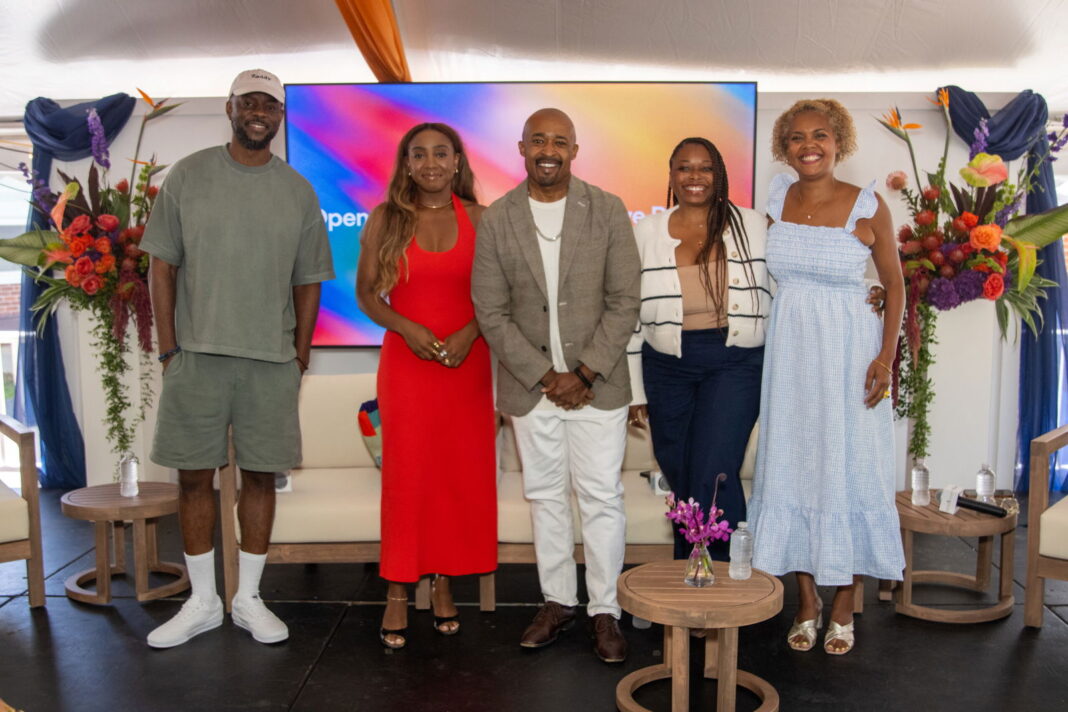The Power of AI in Creative Industries: Insights from Creators and Innovators

by Selena Hill, September 19, 2025
A panel of creators, journalists, and filmmakers recently gathered to discuss a compelling topic: how Artificial Intelligence (AI) is revolutionizing the creative landscape. This evolution mirrors the impact of the digital revolution in the early 2000s, reshaping the way we work, think, and consume information.
AI: Streamlining Workflows for Creators
In the past year, AI has emerged as a powerful tool, streamlining tedious processes and enabling creative professionals to focus on what they do best. For independent creators and small business owners, the ability to generate high-quality content quickly is a game changer. Tasks that once took days—like designing a unique logo—can now be accomplished in seconds using AI platforms, allowing creators to invest more time into innovative projects.
The Rise of Conversational AI
ChatGPT, launched by OpenAI in 2022, has gained recognition as one of the fastest-growing consumer applications. This AI chatbot excels in various content creation tasks, including brainstorming and research, providing creators with a wealth of ideas and inspiration at their fingertips. Many users affectionately call it “Chat,” highlighting its role as a brainstorming partner.
Spotlight on the Martha’s Vineyard African American Film Festival
At the recent 23rd annual Martha’s Vineyard African American Film Festival, OpenAI hosted a panel featuring creative visionaries like comedian Will “King Willonius” Hatcher, Lindsay Peoples, editor-in-chief of The Cut, filmmaker Aaliyah Williams, and Mike Muse, a pop culture expert and SiriusXM host. Moderated by Cori Murray, EVP of editorial content at EBONY Magazine, the discussion centered on the transformative potential of AI in storytelling.
“AI is in our lives. It’s not writing our stories, but it is helping. And I can see that it is truly a creative partner,” said Murray, emphasizing the collaborative relationship between AI and human creators.
AI’s Impact on Research and Preparation
Mike Muse shared his experience using AI to cut down his research time drastically. Previously, he would spend hours sifting through data to prepare for television appearances. Now, platforms like ChatGPT streamline this process, offering insights and relevant trends with ease.
Despite this efficiency, Muse cautioned against over-reliance on AI. “It can’t do the conversation for me on television,” he noted, highlighting the importance of personal insight in contextualizing data. Creatives still need the ability to understand and effectively convey information to audiences.
Simplifying Complex Tasks
Lindsay Peoples discussed how AI helps her sift through extensive legal documents swiftly. The ability to pinpoint key information in 250-page texts allows her to focus on strategic decision-making rather than getting bogged down in minutiae.
Meanwhile, Aaliyah Williams talked about how ChatGPT, affectionately called “Lumie,” facilitates her workflow. It aids her in writing recommendation letters and reviewing film scripts, freeing up valuable leisure time.
Creative Breakthroughs through AI
Hatcher shared his inspiring journey with AI. Initially seeking a way to break into Hollywood, he began producing AI-generated movie trailers based on his scripts. One of his ventures, a viral AI-created song titled “BBL Drizzy,” highlights the creative possibilities AI provides.
He elaborated on plans to create a narrative dome experience for this project, featuring immersive storytelling using AI-generated content. This innovative approach exemplifies how AI can enable creators to push the boundaries of their artistic visions.
Democratizing Access to Creativity
The consensus among the panelists is that AI has the potential to democratize storytelling in the entertainment industry. Muse pointed out that AI reduces financial barriers, allowing more individuals to create and distribute their stories without the need for hefty budgets or extensive resources.
“There’s a shift coming in Hollywood,” he asserted, urging creatives to harness AI for their advantage. The need for education and understanding of these tools is vital, especially for Black creators, to ensure they remain competitive in an evolving industry.
Embracing the Future of AI in Creativity
As the discussion wrapped up, Hatcher poignantly remarked that AI has unlocked his creativity, empowering him as both a creator and entrepreneur. The innovative possibilities brought forth by AI tools allow storytellers to operate at larger scales, reinforcing the importance of embracing technology in creative pursuits.
Looking forward to 2026, he anticipates further advancements in the AI film space, stressing the importance of preparation in this evolving landscape. AI is not just a tool; it’s a catalyst for innovators willing to explore new horizons in storytelling.



